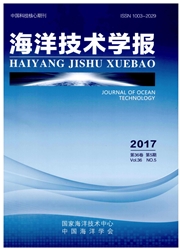

 中文摘要:
中文摘要:
近年来,随着浮式生产储存卸货装置(FPSO)逐渐成为世界海洋石油开发的主流方式,FPSO租赁业也随之兴盛起来。然而,迄今为止海洋石油领域仍缺乏对FPSO各服务模式的界定以及对其服务模式进行经济分析的理论依据。论文在调研目前世界范围内FPSO租赁业状况的基础上,对海洋石油领域现有的三种FPSO服务模式(干租、湿租及类湿租)进行了定性分析。首次对其各自的定义进行了归纳,并对其特点、性质进行了总结。此外,文中提出了在贫信息状态下利用灰关联度分析和GM(1,N)模型相结合的方法对FPSO服务模式进行定量经济分析的模型。通过对此模型参数包的求解.给出目标系统中各影响因素对FPSO租赁报价的贡献量,从而为FPSO所有者租赁报价的制定提供合理的科学依据。实例分析表明,这种经济分析模型所需信息量小,建模精度高,分析结果具有较高的可靠度。
 英文摘要:
英文摘要:
In recent years, the Floating Production Storage & Offloading (FPSO) has become one of the more dominant technologies in worldwide offshore oil exploitation, and FPSO charter operations have flourished accordingly. Thus far, however, several major FPSO service models have yet to be defined, and there is still no theoretical economic analysis for these models. Based on an investigation into the realities of the FPSO charter business, this paper describes three service models (Bare Boat Charter, Service Charter and Part-Service Charter), and sets forth the chief characteristics of each model. Furthermore, by adopting the Grey Relational Analysis and model, a quantitative economic analysis based on an information deficiency state is offered for each service model. Basically, the contributing rate of each factor of the target system for the quoted price of FPSO chartering can be calculated using the parameter pack of this model. The main advantage of the economic analysis is that the FPSO's owner is able to set a reasonable price quote. In addition, the economic model requires less information but is extremely precise and produces highly reliable results.
 同期刊论文项目
同期刊论文项目
 同项目期刊论文
同项目期刊论文
 期刊信息
期刊信息
